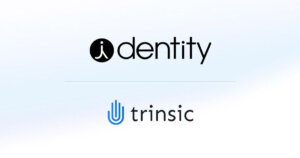 Phaver disrupts web3 with unique take on memecoins and creator collaboration
Phaver disrupts web3 with unique take on memecoins and creator collaboration The social layer of web3 is rapidly evolving and emerging as a crucial frontier. In a recent episode of the SlateCast podcast, CryptoSlate’s Liam “Akiba” Wright and CEO Nate Whitehill sat down with Joonatan Lintala, the CEO of the web3 social app Phaver, to explore how this new paradigm is empowering creators and communities.
The Meme Coin Conundrum
The discussion started with a dive into the controversial world of meme coins. Akiba, a self-proclaimed critic of memecoins, argued that they often “hurt adoption” and represent “gambling” rather than genuine value creation. However, he acknowledged that Lens memecoins, such as Bonsai and Degen, behave differently, potentially driving the adoption of decentralized social platforms.
Lintala shared a similar perspective, noting the “casino and the computer” dichotomy in blockchain, where speculation can overshadow the development of real-world solutions. He explained:
“If the meme coins, in this case, the social meme coins especially, are the ones that are actually driving adoption of those computer side solutions, such as decentralized social and web free social, then obviously they can be a net positive.”
Favor’s Approach to Tokens
Lintala delved into Phaver’s approach to building an in-app economy, emphasizing the importance of being “farming resistant” and incorporating advertising partners. He highlighted the lessons learned from the Lens ecosystem, where airdrops to bots and multi-account users have diluted the value of some meme coin distributions. Lintala explained:
“We’re hoping that’s going to be kind of even more of an adoption driver. But at the same time, it’s been very bullish to see how well Bonsai is doing on the Lens side. And of course Degen on the Farcaster side has been an even much bigger success and very much driving the adoption of Farcaster, despite being a third party meme coin on top of Warpcast right now.”
Building Partnerships and Community
A key aspect of Phaver’s strategy is building mutually beneficial partnerships with high-quality web3 projects and local communities. Lintala highlighted the importance of these collaborations, stating:
“By far the biggest value you can bring in growth is if you build mutually beneficial partnerships with high-quality people or projects.”
This approach has allowed Phaver to create a thriving ecosystem, with creators from diverse backgrounds and locations finding a home on the platform. Lintala noted:
“We have a lot of really amazing content. Female creators, whether they are creating art or music or just in general sheet posting.”
The Holistic Web3 Social Experience
Phaver’s vision extends beyond just social media functionality, as the platform aims to provide a seamless and accessible experience for users to engage with various web3 features. Lintala explained the company’s plans to integrate Lens, Farcaster, and Open Actions, allowing users to mint NFTs, sell digital content, and more, all within the Phaver ecosystem. Lintala shared:
“We want to include both Forecaster Frames and Lens Open Actions. Besides Lens collecting alone, we see that while collecting posts does have an amount of potential in itself, but I think there’s even more potential in the general collectibles minting of, if you’re an artist you can make kind of an actual NFT instead of a Lens post NFT out of an artwork and allow people to meet that if you’re a musician, you can sell your fantasies directly in frames or open actions, all of that, I think will have even bigger potential than just the collecting alone.”
The Future of Web3 Social
As the web3 social landscape continues to gain adoption, Phaver’s focus on building a mainstream-friendly, farming-resistant platform that empowers creators and communities across the globe stands out. With plans to integrate various web3 functionalities and maintain a diverse and engaged user base, Phaver aims to be a leading player in the next chapter of decentralized social media.
NEW SLATECAST 🎙️ 2024 SocialFi explosion hits as creators monetize content faster than ever before with @joonatanlintala of @phaverapp
Co-hosted by @akibablade and @NateWhitehill pic.twitter.com/Na0cUvDL5Q
— CryptoSlate (@CryptoSlate) April 11, 2024
Episode Hosts
Also known as “Akiba,” Liam Wright is a reporter, podcast producer, and Editor-in-Chief at CryptoSlate.
Nate Whitehill, a technology entrepreneur with nearly two decades of experience developing web applications, plunged into digital assets upon discovering Bitcoin in 2015.



 CryptoQuant
CryptoQuant 


































































 Liam Wright
Liam Wright  Nate Whitehill
Nate Whitehill 


